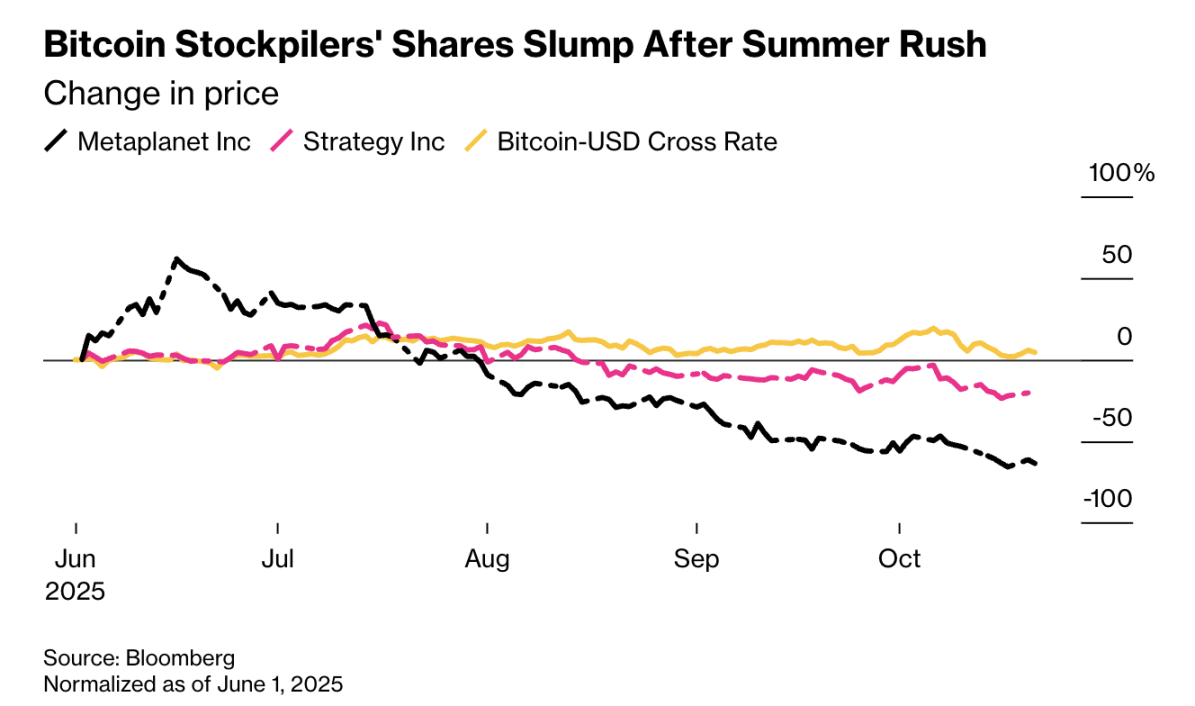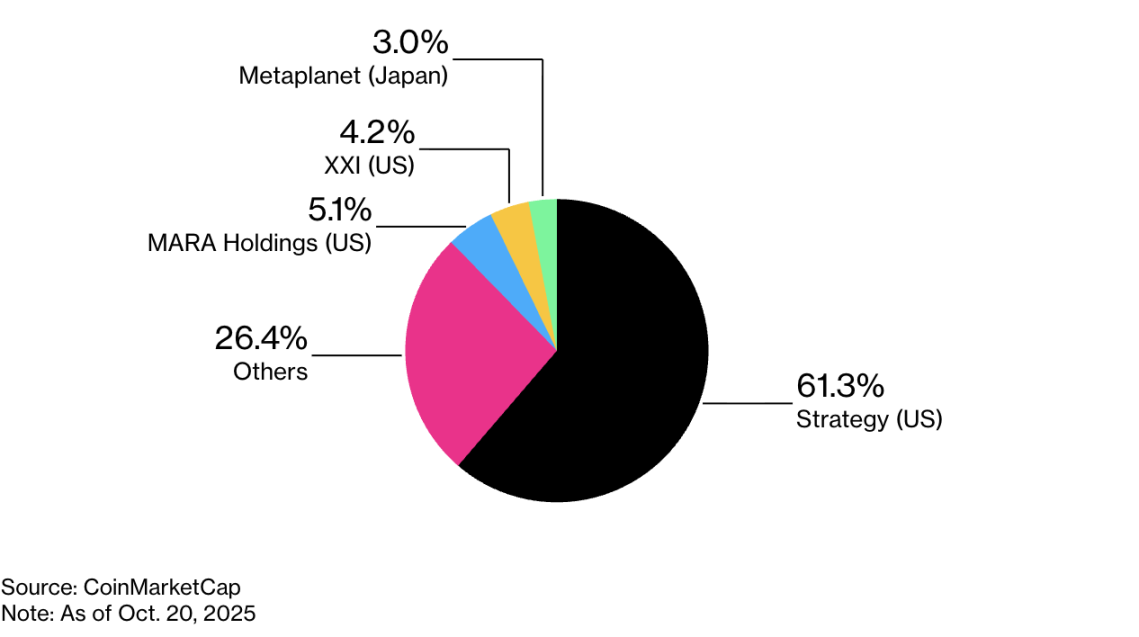Three major exchanges in the Asia-Pacific region resist "crypto treasury companies"
Several Asia-Pacific countries, including Hong Kong, India, Mumbai, and Australia, are resisting corporate hoarding of cryptocurrencies.
Multiple Asia-Pacific countries including Hong Kong, India, Mumbai, and Australia resist corporate hoarding of cryptocurrencies
Written by: Alice French, Richard Henderson, Kiuyan Wong, Yasutaka Tamura
Translation: Joe Zhou, Foresight News
- Hong Kong Exchanges and Clearing Limited (HKEX) has questioned at least five companies planning to transform into DATs (Digital Asset Treasury companies), stating that current regulations prohibit companies from hoarding excessive liquid funds.
- Resistance to DATs has also emerged in India and Australia. Local exchange operators share similar concerns, and these attitudes may stall the plans of many cryptocurrency treasury companies.
- Japan is an exception in the Asia-Pacific region. Local listing rules are relatively lenient for digital asset treasury companies, giving them greater freedom. However, signs of friction are beginning to appear—even MSCI has proposed removing large cryptocurrency treasury companies from its global indices.
The three major stock exchanges in the Asia-Pacific region are resisting companies disguised as listed firms whose main business is hoarding cryptocurrencies.
According to informed sources, HKEX has questioned at least five companies in recent months that plan to shift their core business to digital asset treasury strategies, citing rules that prohibit holding large amounts of liquid assets. So far, none of these companies have been approved. In India and Australia, so-called Digital Asset Treasury companies (DATs) have encountered similar resistance.
This resistance targets both cryptocurrencies themselves and the listed company vehicles whose core business is hoarding crypto assets, posing risks to the digital asset market rally that has continued for most of 2025.
Bitcoin hit a record high of $126,251 on October 6, up 18% so far this year. This surge has largely been driven by the emergence of numerous companies dedicated to hoarding bitcoin. The model pioneered by bitcoin giant MicroStrategy, led by Michael Saylor and with a market cap of $70 billions, has spawned hundreds of imitators worldwide. Most of these companies have market capitalizations exceeding the total value of their crypto assets, highlighting strong investor demand.
Recently, the pace of purchases by Digital Asset Treasury companies (DATs) has slowed, and their stock prices have declined, in line with the sharp sell-off in the broader crypto market. According to a recent report by Singapore's 10X Research, retail investors have lost about $17 billions in DAT trades.

In Asia-Pacific markets, concerns from exchange operators may completely block the plans of cryptocurrency hoarders.
"Listing rules directly determine the speed and regulatory standards of the cryptocurrency treasury model," said Rick Maeda, a crypto analyst at Tokyo-based Presto Research. He added that if the rules are "predictable and lenient," they can attract capital and boost investor confidence; a stricter environment would slow down the execution of digital asset treasury companies.
"Cash Companies" Among Listed Firms
According to HKEX rules, if a listed company's assets are mainly composed of cash or short-term investments, it will be regarded as a "Cash Company," and its shares may be suspended from trading. The aim is to prevent shell companies from equating their listed status with cash for trading purposes.
Simon Hawkins, a partner at law firm Latham & Watkins, said that for companies intending to hoard cryptocurrencies, whether they can obtain approval depends on whether they can "demonstrate that acquiring crypto assets is a core part of their business operations."
According to informed sources, for listed companies in the former British colony, it is currently prohibited to transform into pure cryptocurrency hoarding companies.
A spokesperson for HKEX declined to comment on the specific companies it had questioned but stated that its framework "ensures that all companies applying for listing and already listed companies have viable, sustainable, and substantive businesses and operations."
In a similar case, the Bombay Stock Exchange last month rejected Jetking Infotrain's application for a preferential share issue listing. The company had stated it would invest part of the funds raised into cryptocurrencies. A filing shows the company is appealing the decision. Both BSE (Bombay Stock Exchange) and Jetking did not respond to requests for comment.
In Australia, the Australian Securities Exchange (ASX Ltd.) prohibits listed companies from allocating 50% or more of their balance sheet funds to cash or cash-like assets. Steve Orenstein, CEO of software company Locate Technologies Ltd., said this clause makes it "almost impossible" to adopt the cryptocurrency treasury model. According to a spokesperson, this company, which transitioned from a software company to a bitcoin buyer, is now moving its listing from Australia to New Zealand, where the New Zealand Exchange (NZX Ltd.) is willing to accept Digital Asset Treasury companies (DATs).
A spokesperson for ASX said that if listed companies turn to investing in bitcoin or ethereum, "it is recommended that their investment products be designed as exchange-traded funds (ETFs)." Otherwise, they "are unlikely to be considered suitable for inclusion on the official listing roster."
They stated that ASX does not prohibit the use of the cryptocurrency treasury strategy, but also warned that potential conflicts with listing rules must be handled with caution.
Japan's "Hoarders"
Japan is a notable exception in the Asia-Pacific region. Locally, it is common for listed companies to hold large amounts of cash, and listing rules for Digital Asset Treasury companies (DATs) are relatively lenient, giving them greater freedom.
Hiromi Yamaji, CEO of Japan Exchange Group, said at a press conference on September 26: "Once a company is listed, if it makes appropriate disclosures—for example, disclosing that it is purchasing bitcoin—it would be quite difficult to immediately deem such actions unacceptable."
According to BitcoinTreasuries.net, Japan has 14 listed bitcoin buyers, the most in Asia. These include hotel company Metaplanet Inc., one of the early adopters of the digital asset treasury model, which currently holds about $3.3 billions in bitcoin. Since it began its transformation at the start of 2024, the company's share price soared to a peak of 1,930 yen in mid-June but has since fallen by more than 70%.

Japan has also seen some bizarre bitcoin purchase plans: Tokyo-based, publicly listed nail salon operator Convano Inc. announced in August plans to raise about 434 billion yen ($3 billions) to buy 21,000 bitcoins. At the time, the company's market capitalization was only a small fraction of the fundraising amount.
Even for Japan's cryptocurrency hoarders, signs of friction have emerged. MSCI, one of the world's largest index providers, recently proposed excluding large Digital Asset Treasury companies (DATs) from its global indices following an investigation into Metaplanet's $1.4 billions international equity offering in September. Metaplanet joined the MSCI Japan Small Cap Index in February this year and stated it would use most of the funds raised to buy bitcoin, later purchasing an additional 10,687 tokens. Metaplanet did not respond to requests for comment.
MSCI stated in a notice that Digital Asset Treasury companies (DATs) "may exhibit characteristics similar to investment funds" and therefore do not qualify for inclusion in its indices. MSCI recommends banning companies whose crypto assets account for 50% or more of their total assets.
Japanese equity analyst Travis Lundy wrote in a Smartkarma report that if excluded from the indices, Digital Asset Treasury companies (DATs) would no longer enjoy passive capital inflows from funds tracking the index. He added: "This could destroy the argument for their price-to-book premium."
Disclaimer: The content of this article solely reflects the author's opinion and does not represent the platform in any capacity. This article is not intended to serve as a reference for making investment decisions.
You may also like
ECB shifts stance! Will interest rate hikes resume in 2026?
In the debate over "further tightening" versus "maintaining the status quo," divisions within the European Central Bank are becoming increasingly public. Investors have largely ruled out the possibility of the ECB cutting interest rates in 2026.
On the eve of Do Kwon's trial, $1.8 billion is being wagered on his sentence
Dead fundamentals, vibrant speculation.

Space Review|When the US Dollar Weakens and Liquidity Recovers: Cryptocurrency Market Trend Analysis and TRON Ecosystem Strategy
This article reviews the identification of macro turning points and the capital rotation patterns in the crypto market, and delves into specific allocation strategies and practical approaches for the TRON ecosystem during market cycles.

30-Year Wall Street Veteran: Lessons from Horse Racing, Poker, and Investment Legends That Inspired My Bitcoin Insights
What I focus on is not the price of bitcoin itself, but rather the position allocation of the group of people I am most familiar with—those who possess significant wealth, are well-educated, and have successfully achieved compounding returns on capital over decades.
